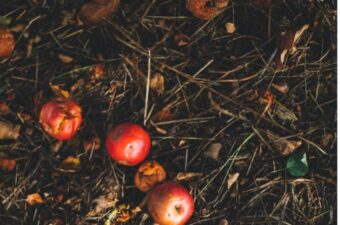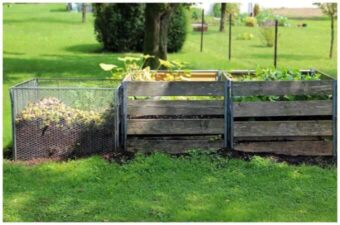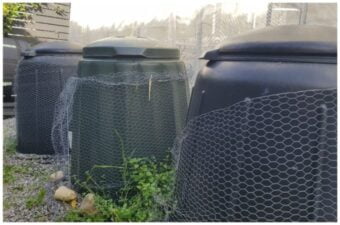Can You Put Tea Bags in Compost? A Guide to Composting Tea Bags at Home
Tea bags are a convenient and widely used option for tea drinkers. In this article, we will address the question “Can you compost tea bags?” and examine the various types of tea bags, explore alternative options, and provide guidance on how to compost tea bags and leaves correctly.

Table of Contents
Can You Compost Tea Bags?
The answer is yes but with a caveat. Only compostable tea bags made from natural materials like wood pulp, hemp, or abaca plant fibers are suitable for home composting. Tea bags made from plastic or plant-based plastic may not break down as quickly as biodegradable tea bags, making them unsuitable for home composting.
To determine the compostability of tea bags, it is crucial to check the packaging or the manufacturer’s website.
In addition, certification from organizations like the Biodegradable Products Institute (BPI) or the Composting Council can also assist in determining whether tea bags are compostable.
What are the benefits of composting tea bags?
Composting tea bags has several benefits, including reducing waste, improving soil quality, and helping to mitigate greenhouse gas emissions.
Tea bags contain organic material that can enrich your compost, which can, in turn, provide nutrients to your plants.
Learn More: Are Tea Bags Good For Plants?
Types of Tea Bags
Tea bags come in different materials, including plastic, plant-based plastic, and biodegradable materials.
| Part of Tea Bag | Compostable Materials | Non-Compostable Materials |
|---|---|---|
| Bag | Paper, silk, PLA, cornstarch-based materials | Nylon, PET, PVC, or other plastic-based materials |
| String | Cotton, hemp, or other natural fibers | Synthetic fibers, such as polyester or nylon |
| Tag | Paper, cardboard, or PLA | Plastic, such as PVC or PET |
| Staple | None (some brands have eliminated staples to be more eco-friendly) | Metal |
- Plastic tea bags: Polypropylene, a non-biodegradable plastic, makes up plastic tea bags, which can take hundreds of years to break down.
- Plant-based plastic: Cornstarch-based materials form plant-based plastic tea bags that break down faster than traditional plastic.
- Biodegradable tea bags: Wood pulp, hemp, and other plant fibers make up biodegradable tea bags that break down in composting environments.
The material of tea bags determines their environmental impact.
Plastic tea bags contribute to the plastic waste problem and can release microplastics into the soil and water.
Plant-based plastic tea bags, though marketed as eco-friendly, still take a long time to break down and may not be compostable everywhere.
Biodegradable tea bags are the most eco-friendly option, but it’s important to check if they’re certified as compostable by a reputable organization.
Alternatives to Tea Bags
If you’re looking for an alternative to tea bags, loose leaf tea is a great option.
Vendors often sell loose leaf tea in bulk or resealable packaging, which reduces waste compared to individual tea bags.
You can brew loose leaf tea using a tea infuser or strainer, both of which you can compost along with the tea leaves.
Another way to repurpose tea leaves is by using them as foliar spray or soil drench. Tea leaves are rich in nutrients like nitrogen, phosphorus, and potassium, which are essential for plant growth.
By steeping used tea leaves in water, you can create a nutrient-rich tea that can be applied to the leaves of plants as a foliar spray or directly to the soil as a soil drench.
This method can help provide essential nutrients to plants, promote healthy growth, and even ward off pests.
Tea Brands and Their Compostability
While compostable tea bags are becoming more widely available, not all tea brands have made the switch yet.
Yorkshire Tea is a popular brand of tea that has made the switch to biodegradable tea bags. They make their tea bags from a compostable, plant-based material called cornstarch.
Stash Tea is another tea brand that offers a range of teas in compostable tea bags. They make their tea bags from a combination of natural materials, such as wood pulp and vegetable fibers.
Traditional Medicinals is a brand that uses unbleached tea bags made from compostable materials.
It’s important to note that some tea brands may have both compostable and non-compostable tea bags, depending on the specific product.
Furthermore, compostable tea bags differ in their composition. Some brands produce tea bags from PLA, a plant-based plastic that only industrial composting facilities can compost.
Other brands use a blend of natural materials, which you can compost at home in a compost bin or pile.
It is advisable to check the packaging or the brand’s website to confirm whether their tea bags are compostable or not.
Composting Tea Bags at Home
If you’re composting tea bags at home, there are a few things you can do to ensure they break down properly.
First, make sure to remove the staple and any tags or strings from the tea bags if they are not compostable.
Next, separate the tea leaves from the tea bags and add them to your compost bin or pile. The tea bags can be added as well, but make sure to shred them into smaller pieces to help them break down faster.
It’s important to balance the carbon-to-nitrogen ratio in your compost pile, so make sure to add other organic materials like food waste, leaves, and grass clippings. This will help create the ideal environment for decomposition.
If you’re using a compost bin, make sure to turn the compost regularly to help aerate it and speed up the decomposition process.
For additional inspiration on potential applications for tea bags, please refer to “How To Use Tea Bags In Your Garden.
Summary: Can you compost tea bags?
Yes, you can compost tea bags made from compostable materials that are free of plastic.
Composting tea bags is a great way to reduce waste and provide nutrients to your plants and soil. However, it’s important to make informed choices when it comes to tea bags and to know which brands are using sustainable materials.
In addition to composting tea bags, there are other ways to reduce waste and repurpose tea leaves.
Opting for loose leaf tea over tea bags is an excellent alternative and can be composted similarly.
You can also use tea leaves to create foliar sprays or soil drenches, which supply plants with nutrients and encourage robust growth.
As tea drinkers, we can all make small changes to reduce waste and contribute to a more sustainable future.
By choosing compostable tea bags and properly composting them, we can help reduce the amount of waste that ends up in landfills and provide nutrients to our plants and soil.
Learn More: Composting for Beginners
FAQ:
Are Yorkshire Tea Bags Compostable?
Yes, Yorkshire Tea bags are compostable. They are made from plant-based materials, such as corn starch and wood pulp, which can be broken down in a compost pile.
Are Tetley Tea Bags Compostable?
Some Tetley Tea bags are compostable, while others are not. Tetley has started to transition to plant-based tea bags, but not all of their products are fully compostable yet. The best way to determine if a specific product is compostable is to check the packaging.
Are Celestial Tea Bags Compostable?
Yes, Celestial Tea bags are compostable. They are made from natural fibers, such as abaca (a type of banana tree) and hemp, which can be broken down in a compost pile.
Are Good Earth Tea Bags Compostable?
Yes, Good Earth Tea bags are compostable. They are made from natural fibers, such as hemp and unbleached paper, which can be broken down in a compost pile.
Can You Compost Lipton Tea Bags?
Lipton Tea bags are not compostable. They are typically made from a combination of paper and plastic, which can take years to break down in a compost pile. It is recommended to remove the tea leaves from the bag and compost them separately.
Are Harney and Sons Tea Bags Compostable?
Yes, Harney and Sons Tea bags are compostable. They are made from natural fibers, such as cotton and linen, which can be broken down in a compost pile.
Are Luzianne Tea Bags Compostable?
Luzianne Tea bags are not compostable. They manufacture them from paper and may include plastic fibers, which can take years to decompose in a compost pile. It is advisable to separate the tea leaves from the bag and compost them separately.
Are Mighty Leaf Tea Bags Compostable?
Yes, Mighty Leaf Tea bags are compostable. They are made from natural fibers, such as hemp and abaca, which can be broken down in a compost pile.
Can You Compost Tazo Tea Bags?
Some Tazo Tea bags are compostable, while others are not. Tazo has started to transition to plant-based tea bags, but not all of their products are fully compostable yet. The best way to determine if a specific product is compostable is to check the packaging.
Are Republic of Tea Tea Bags Compostable?
Yes, Republic of Tea Tea bags are compostable. They are made from natural fibers, such as unbleached paper and hemp, which can be broken down in a compost pile.
Are Yogi Tea Bags Compostable?
Yes, Yogi Tea bags are compostable. The teabag consists of abaca plant fibers and does not have any metal staples or genetically modified material, chlorine, or plastic, which makes it entirely biodegradable.
You can dispose of it in the compost or organic waste bin, enabling it to return to the cycle of nature.
Can You Compost Celestial Seasonings Tea Bag?
Yes, the Celestial Seasonings Tea bag is compostable. It’s made from natural fibers, such as hemp and unbleached paper, which can be broken down in a compost pile.
Can you compost Bigelow tea bags?
Yes. According to their website, all Bigelow teabags are 100% biodegradable.
Are Pukka tea bags compostable?
Yes. The tea bag paper is made of natural abaca, wood pulps, and plant cellulose fibres, with staple-free stitching and organic cotton strings, making the teabags recyclable and compostable.





